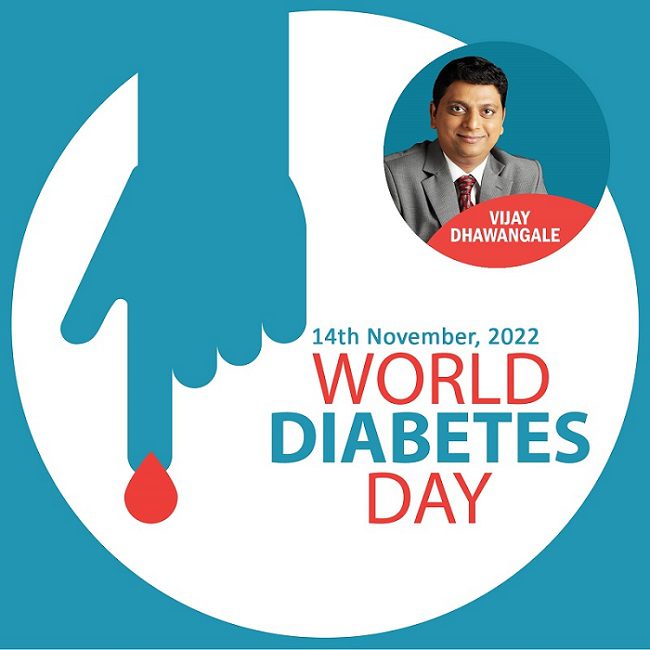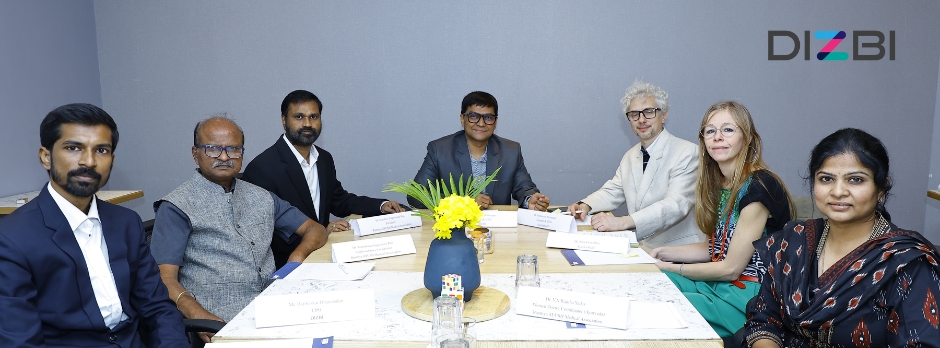
With Diabetes on the rise, Vijay Dhawangale recommends promoting health rather than treating diseases
- November 14, 2022
- 0
Governments can go a long way to prevent the unnecessary death and disability of millions of people. We need to work together to make the changes today that will protect the health of families tomorrow
Delhi, Nov 13, 2022: Diabetes is one of the main non-communicable diseases in India and is a major public health challenge. Despite improvements in early detection and treatment, many of those with diabetes develop serious complications such as heart attack, stroke, amputation, blindness, and dialysis. By far the most common form of diabetes is type 2 diabetes, which mostly develops in late adulthood mainly due to physical inactivity, smoking and obesity. According to Global Healthcare Advisor Vijay Dhawangale, Diabetes historically was a disease of the affluent, but the recent epidemiological evidence indicates diabetes is now common among the urban India’s middle class and underprivileged sections of our society.
While addressing an online conference today on the eve of World Diabetes Day organised for its members by the healthcare and wellness committee of the global association for government service providers, Vijay recommended to focus on diet and exercise to try to control your blood sugar and prevent problems. If you do not control your blood sugar, you could develop eye problems, have problems with sores and infections in your feet, have high blood pressure and cholesterol problems, and have kidney, heart, and problems with other essential organs. People with any type of diabetes, who maintain good control over their blood sugar, cholesterol, and blood pressure can live a long and healthy life. Everyone with diabetes should receive proper education and support about the best ways to manage their diabetes added Vijay.
Vijay points that the metabolic disease known as diabetes has reached the proportions of a worldwide epidemic. It not only endangers human health, but also social structures and national economies. According to International Diabetes Federation estimates, around 415 million people had Diabetes in 2015 and this number is expected to rise to 642 million by 2040. The United Nations lists diabetes as the first non-infectious disease on the list of worldwide dangers to human health. The chronic disease no longer only affects first world countries; China and India have also published alarming figures. Estimates predict approximately 300 million diabetes cases worldwide by 2025.
India is deemed as the world’s capital of diabetes. The diabetic population in the country is close to hitting the alarming mark of 69.9 million by 2025 and 80 million by 2030. This denotes that the developing country is expected to witness an increase of 266%. The statistics recently accumulated showcase that culture of diabetes is more prevalent in the urban areas as 28% of the population living in cities are affected, whereas 5% of the rural population are positive with diabetes mellitus.
While the diabetes epidemic has become a concern for the public, there is also a strong perception that those in a position to bring about change are not taking the right steps to prevent this non-communicable disease from drastically effecting lives. According to Vijay Dhawangale, majority of cases of diabetes are preventable, there is a need to invest in education and prevention.
Who is Vijay Dhawangale
Vijay Dhawangale is a philanthropist, mentor, a successful entrepreneur, venture capitalist and global healthcare advisor. Passionate about giving back to his community and the world, he is active in many local and global organizations. His model of Preventive Diagnostics Programs around the world involves deeper strategies for local and state-level implementation. The initiative provides a package of essential diagnostic services free-of-cost across all public health facilities using innovative, low-cost technology. He is particularly vocal about access to quality healthcare to all.
Disclaimer: South Asia News Network and its affiliates shall not be held liable for any errors or omissions in the content provided on this website or for any actions taken based on the information provided. Users agree that the use of the website and its content is at their own risk. In no event shall www.southasianewsnetwork.in be liable for any direct, indirect, incidental, special, or consequential damages arising out of or in connection with the use of this website.






